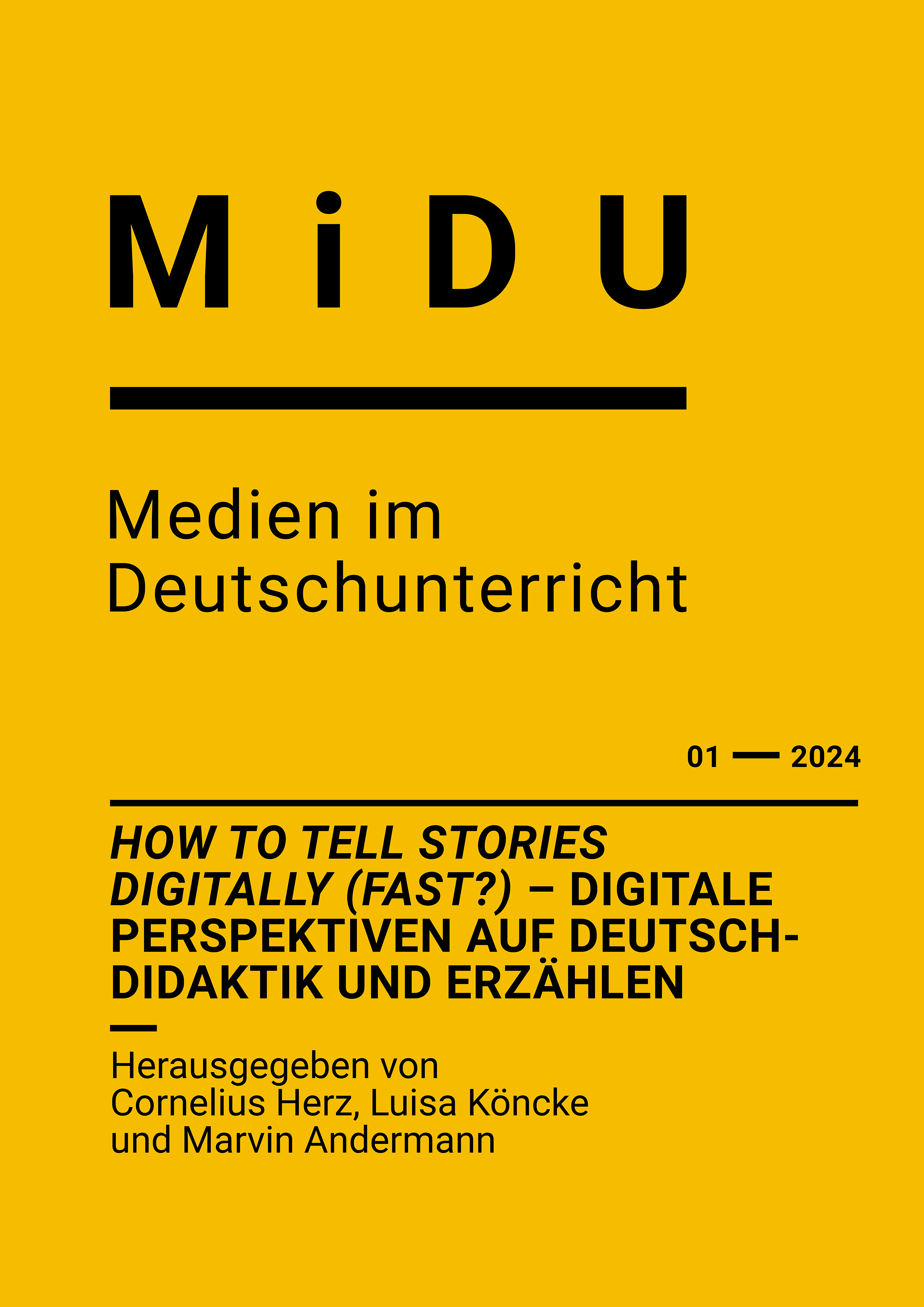How to understand & write literature with AI? Potentiale und Risiken von KI-Tools für Literarisches Lesen und Schreiben
DOI:
https://doi.org/10.18716/OJS/MIDU/2024.1.3Keywords:
Künstliche Intelligenz, Kreatives Schreiben, Literarisches Verstehen, ChatGPTAbstract
Künstliche Intelligenz dringt zunehmend in künstlerisch-kreative Handlungsfelder vor, die bislang als genuin menschliche Tätigkeiten angesehen wurden. Damit rücken auch Facetten der digitalen Rezeption und Produktion literarischer Gegenstände in den Blick, die bisher im literaturdidaktischen Diskurs kaum eine Rolle gespielt haben: Mit nichtmenschlichen Akteuren zu literarischen Texten interagieren oder literarisch mit Hilfe einer Maschine schreiben, verändert die Erfordernisse und Bedingungen literarischer Texterschließung und Kommunikation außerhalb und innerhalb von schulischen Kontexten. Da es im Umgang mit Literatur jedoch seit jeher nicht nur auf das „Verstehen“ eines Ausgangstextes, sondern ebenso auf seine emotionale, körperliche und somit individuelle bzw. erfahrungsbezogene Aneignung ankommt, wirft der Einbezug von KI-Tools in den Literaturunterricht weitreichende Fragen auf. Der Beitrag fragt daher explorativ, wie sich die Anschlusskommunikation zu literarischen Texten mit Unterstützung von sprachbasierten KI- Tools hier einordnen lässt und welche Transformationen bisheriger schreib- und literaturdidaktischer Normen und Praktiken damit ggf. einhergehen werden.
Abstract (english): How to unterstand & write literature with AI? Potentials and risks of KI tools for literary reading and creative writing
Artificial intelligence is increasingly making inroads into artistic and creative fields of action that were previously regarded as a genuinely human purview. As a result, facets of the digital reception and production of literary objects that have hardly played a role in didactic discourse to date are now coming into focus: Interactions with non-human actors when discussing literary texts, or even writing literary texts with the help of a machine that can imitate virtually all voices and patterns prevalent in world literature changes the requirements of literary text development and communication outside and within school contexts. However, since dealing with literature has always depended not only on the „understanding“ of a source text, but also on its emotional, physical and thus individual or experiential acquisition, the inclusion of AI tools in literature lessons raises far-reaching questions, not only from a media education and media ethics perspective. Hence, the article explores how follow-up communications to literary texts with the support of language-based AI tools can be categorised and which transformations of norms and practices of writing and literary didactics may be associated with this development.
Downloads
Published
Issue
Section
License
Copyright (c) 2024 Carolin Führer, Peter Gerjets

This work is licensed under a Creative Commons Attribution-NoDerivatives 4.0 International License.







